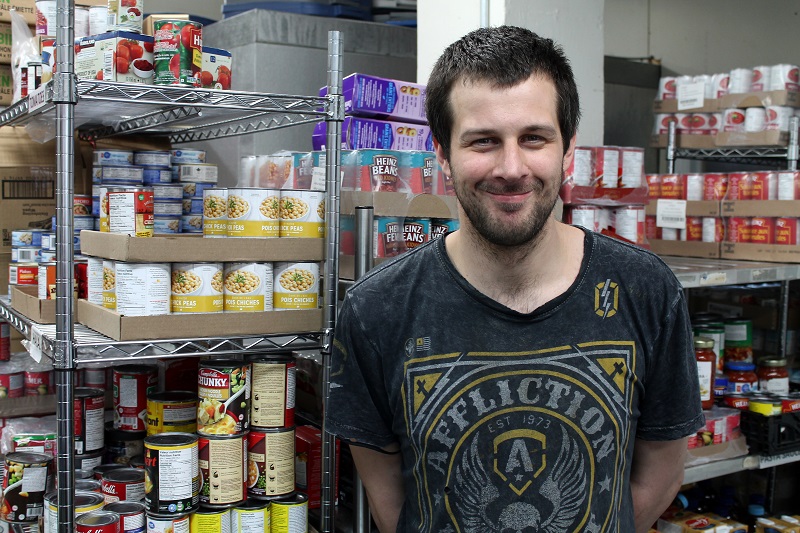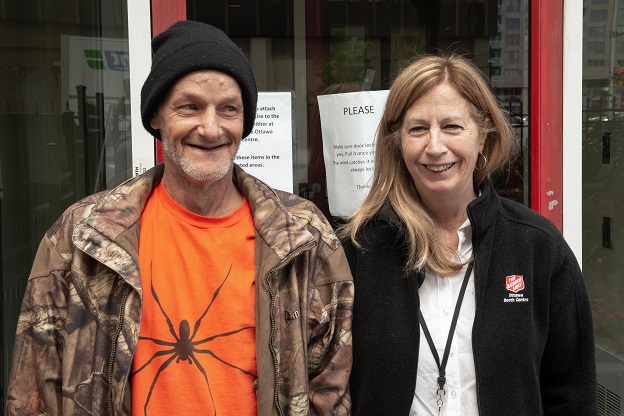Rick’s Story

From an early age Rick Jackson couldn’t get a handle on his insecurities. Due to his father’s addiction to alcohol, Rick lacked support and reinforcement. He never felt good enough, and became frustrated and angry. His self-doubt and desperate need for attention lead to destructive behavior, and Rick’s problems only got worse.
“I did anything to get people to notice me,” says the 58-year-old. “I was the class clown, ridiculed people, beat them up, drank and did drugs. All the while I was in denial about the seriousness of what was going on around me.”
Rick left school after completing Grade 8. His days were spent in alleyways with older, tough guys. He felt important. By age 15 he made fast money with shady deals—he stole and sold anything. He felt important.
Before long Rick was sleeping on friends’ couches. When he wore out his welcome, he slept under trees, in abandoned houses and, in winter, buried himself amongst the clothes in donation bins to stay warm. Meanwhile, his addictions and criminal activity escalated. “I made bad decisions that affected the rest of my life,” says Rick.
One night, after money ran out, he barged into his local pizza shop and held the owner at knife point. The petrified young man begged Rick not to kill him. ‘I have children,’ he pleaded.
Rick was arrested and thrown in prison, a lifestyle he was familiar with. He had spent more than 12 years in the system. But, this time was different. He had remorse for his actions and was determined to get better. While in the reformatory, Rick earned his Grade 10 education and a certificate in painting and decorating.
Following 21 months of incarceration Rick enrolled in Toronto’s Salvation Army Harbour Light residential treatment program. Rick was somewhat familiar with The Salvation Army. As a child the band played on his street corner. At Christmas the Army supported his family. And, the Army had given his father coffee in the War.
But, addicted for more than 40 years, it was difficult for Rick to achieve long-term recovery. Over the span of 18 years he returned to Harbour Light five times. “The people that loved me never gave up on me,” says Rick.
“I was never judged,” continues Rick, “but was treated with dignity. That helped me develop a sense of self-worth and the ability to love myself. It just took a long time.”
Rick’s criminal activity ceased more than 10 years ago and he has been out of the cycle of addiction for more than three years. Today he is a full-time caregiver for his ailing mother. Growing up what Rick believed were signs of weakness— compassion, understanding and forgiveness—are now his greatest strengths.
“Never give up on yourself and surround yourself with good people,” says Rick. “Drug recovery is not an easy process, and in order to quit it takes the support of a positive team.”



